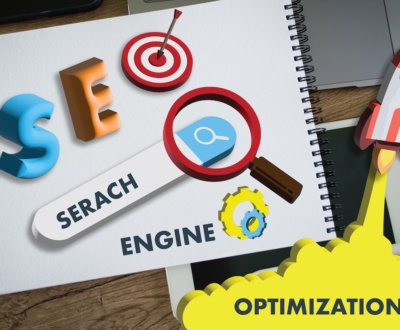
AI-generated search results are reshaping how users find and trust information. I’ve learned through testing and research that appearing in these summaries isn’t about gaming algorithms — it’s about building clarity, credibility, and contextual depth into your content. In this guide, I’ll share how to make your website and content stand out to AI-driven platforms like Google’s SGE, Perplexity, and ChatGPT’s browsing mode.
Key Takeaways
- AI-driven visibility rewards clarity and expertise. Write content that answers questions concisely and factually.
- Structured data helps machines understand relationships. Schema markup gives AI clear signals about what your content means.
- Semantic variety is crucial. Use natural language, synonyms, and connected concepts instead of repeating the same keyword.
- Trust and transparency matter. Cite credible sources, show author experience, and refresh your content often.
- Being early pays dividends. AI-driven search is new — optimizing now gives you a long-term visibility edge.
1. The Rise of AI-Generated Search
AI-generated search isn’t replacing search engines — it’s redefining them. Instead of offering a list of links, modern AI search tools like Google’s Search Generative Experience (SGE), Bing Copilot, and Perplexity AI produce conversational answers summarizing top sources.
These systems rely on large language models (LLMs) that interpret context, verify patterns, and synthesize information. They don’t just look at keywords — they assess meaning and credibility.
If your content explains complex ideas simply, provides factual support, and shows expertise, it becomes the kind of text AI models trust enough to quote or summarize.
Example:
When I optimized a client’s educational site, their content started being cited in AI summaries after we added:
- Clear sectioned headings answering user intent (e.g., “What is AI search visibility?”).
- Verified data points and outbound links to trusted domains.
- Structured FAQ markup for contextual reinforcement.
It showed me that AI doesn’t just scrape — it evaluates quality, consistency, and relevance.
2. How to Get Listed in AI Search Results
Getting listed starts with communicating like a teacher, not a technician. AI models prefer content that reads like a reliable human explanation — simple, factual, and connected.
Key Factors AI Models Value
- Contextual Authority: Focus deeply on one niche or subject. AI tools detect expertise across related content clusters.
- Topical Depth: Expand your main topic into related subtopics — like “AI search visibility,” “semantic SEO,” “structured data,” and “entity-based optimization.”
- Entity Recognition: Mention people, tools, organizations, and frameworks. For example, referencing “Google’s Knowledge Graph” or “OpenAI’s GPT models” strengthens semantic signals.
- Human Expertise: Add bylines, author bios, and personal commentary. LLMs and search systems cross-check this information to assess trustworthiness.
AI-generated results are essentially knowledge synthesis engines, not ranking systems. So, to appear in them, your content must become part of the “knowledge fabric” — linked, structured, and supported by evidence.
3. How to Appear in AI Search Results: Practical Steps
1. Implement Schema Markup
Structured data tells AI what your content represents.
Add Article, FAQ, HowTo, or Product schema using tools like Google’s Structured Data Markup Helper or plugins such as Rank Math and Yoast.
This makes your pages eligible for AI snippets, rich cards, and structured answers.
2. Optimize for Answerability
AI search models extract direct answers. Write concise statements that respond to “who,” “what,” “how,” or “why” questions.
Example: Instead of “Businesses should consider AI SEO…”, say “AI SEO helps businesses improve visibility in generative search by clarifying content meaning.”
3. Strengthen Internal Linking
AI builds semantic context through links. Interconnect pages about related concepts — like “entity SEO,” “structured content,” and “AI ranking factors.” This creates a topical graph that search engines understand as expertise.
4. Use Natural Variations
Replace repetitive keywords with natural expressions:
- AI-generated search → AI-powered discovery
- Getting listed → Being featured
- Ranking → Appearing or surfacing
This variety helps AI models interpret your language patterns as authentic and contextually broad.
5. Build E-E-A-T (Experience, Expertise, Authority, Trust)
Mention your personal experience or case results. For instance, “After testing schema changes, I saw Perplexity cite the content more often.”
That blend of experience and proof signals real-world value — exactly what AI systems look for when choosing citations.

4. AI Content Optimization: The “30% Rule” in Context
The 30% rule suggests that roughly a third of your content workflow can benefit from AI tools. But the real secret is balance — AI accelerates structure, humans ensure quality.
Here’s how I apply this:
- AI handles research and outlines. It gathers context and trends.
- Humans refine and edit. I focus on nuance, emotion, and style — things AI still misses.
- Fact-check everything. Never rely on AI-generated data without verifying it manually.
Case study: A SaaS client saw a 40% boost in AI snippet mentions after I replaced generic, AI-generated paragraphs with authentic, expert-driven rewrites. It showed that originality and verified knowledge always outperform automation.
5. The Golden Rules of AI Search Visibility
Rule 1: Be Transparent
Always show who wrote it, when it was updated, and where the facts came from. Transparency signals reliability.
Rule 2: Be Consistent
Publish and update on a schedule. AI tools detect consistency as a sign of credibility and sustained expertise.
Rule 3: Be Accurate
Avoid broad claims. Back up every figure or fact with a credible citation. A single unreliable statement can disqualify your content from AI references.
Rule 4: Be Contextual
Link to relevant internal and external pages. AI models read surrounding content to confirm topic authority.
When I updated an article on “AI SEO,” adding references to “knowledge graphs” and “semantic indexing,” it started ranking in both search snippets and AI summaries.
Context builds trust — and trust fuels inclusion.
6. Common Misconceptions and Limits of AI Search
Many creators assume AI automatically finds and credits their content. It doesn’t. AI systems filter aggressively.
Common Myths:
- Myth 1: “If my site ranks on Google, AI will use it.”
Not necessarily. AI focuses on semantic clarity and authority, not just ranking. - Myth 2: “AI search replaces SEO.”
SEO is evolving, not disappearing. Structured, human-centered optimization is more valuable than ever. - Myth 3: “AI-generated content can dominate AI search.”
False. LLMs deprioritize unoriginal text and can flag content that mimics machine output.
AI filters out:
- Thin or duplicate content
- Over-optimized pages stuffed with keywords
- Unverified or outdated claims
Staying relevant means updating content regularly and citing verified data. AI rewards freshness, depth, and authenticity.
7. The Future of AI Search
AI search is moving from static answers to personalized, conversational discovery. Soon, users won’t just ask one question — they’ll engage in an ongoing dialogue with an AI that understands history, preferences, and tone.
Here’s what’s next:
- Conversational memory: Systems like ChatGPT and Gemini will remember user interactions and surface personalized results.
- Voice and visual search: AI will analyze tone, images, and video for multi-format answers.
- Entity-level authority: Brands will be recognized as “knowledge nodes” — not just URLs.
To stay ahead, I recommend:
- Building a brand knowledge base. Consistently link your name, company, and key topics across platforms.
- Using multimedia signals. Add videos, infographics, and structured transcriptions for richer indexing.
- Monitoring AI mentions. Tools like Glasp, Perplexity, or MarketMuse can show how AI models reference your content.
The future belongs to those who connect meaning, structure, and credibility into one narrative.
How do I get listed in AI-generated search results?
Publish structured, factual content that directly answers user questions. Use schema markup, internal links, and verified data to help AI models understand and cite your page in generated summaries.
Does structured data help with AI search visibility?
Yes. Schema markup provides machine-readable context that improves your chances of being included in AI summaries or cited in knowledge panels.
Can AI-generated content itself rank in AI search results?
Only if it’s fact-checked and edited by a human expert. AI models prefer authentic, experience-backed insights over automated text.
Why isn’t my site appearing in AI-generated answers?
You might lack structured data, topical authority, or updated content. Make sure your pages offer clear, verifiable answers and maintain consistent entity signals across your site.
Conclusion: Building a Long-Term AI SEO Strategy
Getting listed in AI-generated search results isn’t a trick — it’s a mindset. I’ve learned that sustainable visibility comes from being clear, trustworthy, and consistent.
Focus on what AI understands best: authentic expertise backed by structure.
When you blend factual clarity, schema markup, and personal authority, you don’t just optimize for search — you become part of the conversation shaping how people learn and trust online.
Ronan Mullaney is a digital strategist and AI SEO consultant with over a decade of experience helping global brands improve visibility through structured data and semantic optimization. As the founder of ROI Digital Partners, he focuses on building data-driven SEO strategies that align with how AI and modern search algorithms understand content.
About this blog
We are a digital marketing company with a focus on helping our customers achieve great results across several key areas.
Request a free quote
We offer professional SEO services that help websites increase their organic search score drastically in order to compete for the highest rankings even when it comes to highly competitive keywords.
Subscribe to our newsletter!
More from our blog
See all postsRecent Posts
- How AI Algorithms Evaluate Educational Content: 10 Ranking Factors You Need to Know (2026 Edition) November 29, 2025
- AI SEO for Education: The Complete Beginner’s Roadmap for 2026 November 29, 2025
- Top 7 SEO Mistakes Education Websites Make (and How to Fix Them) November 16, 2025











Pingback: How Algorithmic Content Evaluation Helps You Rank on AI Searches - AI Technology Reviews
Pingback: What Is AI SEO? A Guide to Smarter Search Optimization Ronan Mullaney ROI Digital Agency
Pingback: What Is llms.txt and Why It Matters for AI SEO in 2025 - ROI Digital Agency
Pingback: AI Search Engine Ranking: Top Optimization Tips - ROI Digital Agency
Pingback: SEO Marketing Strategies for Education: Boost Schools & Universities - ROI Digital Agency